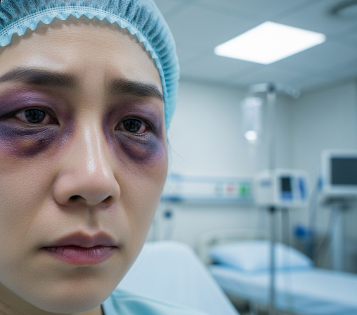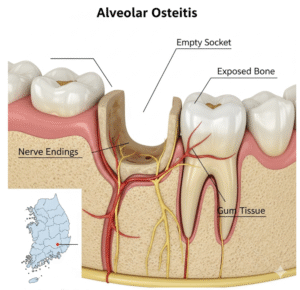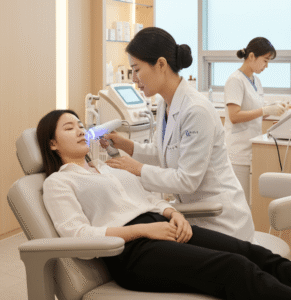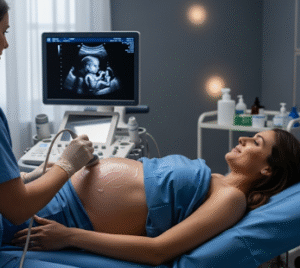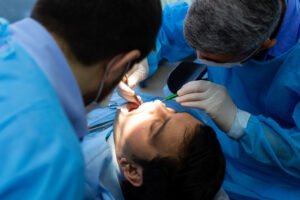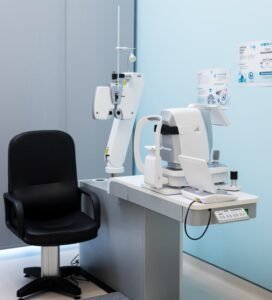Overview
Raccoon eyes, also known as periorbital ecchymosis, refer to dark, bruised discoloration around the eyes resembling the markings of a raccoon. This condition is often associated with serious underlying injuries or diseases, most notably basilar skull fractures, facial trauma, or bleeding disorders.
In Korea, where advanced trauma care and neurosurgical services are highly developed, raccoon eyes are considered a red flag symptom requiring urgent medical evaluation. They often indicate internal bleeding and may be linked to head trauma, tumors, or systemic diseases.
➤ Dark bruising or swelling around one or both eyes
➤ May appear hours to days after head or facial trauma
➤ Strongly associated with skull fractures and intracranial bleeding
➤ Requires immediate medical attention
Key Facts
➤ Raccoon eyes are not caused by direct eye injury but by bleeding under the skin from internal trauma.
➤ They are most commonly linked to basilar skull fractures.
➤ The bruising may take 1–3 days to appear after injury.
➤ Other causes include blood cancers, neuroblastoma (children), and post-surgical complications.
➤ In Korea, emergency CT scans and MRI are standard to assess underlying injury.
What are Raccoon Eyes?
Raccoon eyes refer to bilateral periorbital bruising (dark purple or blue discoloration around the eyes) due to blood tracking into the soft tissues around the eyes.
They are not simple bruises from direct trauma but rather a sign of deeper injury or systemic disease.
- In trauma cases, they often indicate fracture at the base of the skull.
- In non-trauma cases, they may suggest blood clotting disorders or tumors.
What Symptoms Are Related To
Raccoon eyes are usually accompanied by other clinical signs depending on the cause:
➤ Head trauma: headache, nausea, vomiting, dizziness, confusion, loss of consciousness
➤ Skull fracture: clear fluid (CSF) leaking from nose/ears, hearing loss, facial weakness
➤ Bleeding disorders or cancers: unexplained bruising, bleeding gums, fatigue, anemia
➤ Orbital swelling: puffy eyelids, difficulty opening eyes, tenderness around eyes
What Causes / Possible Causes
Raccoon eyes can develop from several conditions:
➤ Trauma-related causes
➤ Basilar skull fracture (most common)
➤ Facial or orbital bone fracture
➤ Post-neurosurgical procedures
➤ Medical conditions
➤ Neuroblastoma (children)
➤ Multiple myeloma
➤ Amyloidosis
➤ Leukemia or other hematological disorders
➤ Other causes
➤ Surgical complications after sinus, nasal, or cranial operations
➤ Rarely, certain systemic diseases causing fragile blood vessels
When Should I See My Doctor
You should seek immediate emergency care if raccoon eyes appear, especially after trauma.
➤ After head or facial injury, even if symptoms appear days later
➤ If associated with clear nasal or ear discharge (possible CSF leak)
➤ If accompanied by neurological symptoms – confusion, seizures, loss of consciousness
➤ If bruising appears without trauma, as it may indicate a serious disease like leukemia or cancer
Care and Treatment
Raccoon eyes themselves are not treated directly – the underlying cause must be identified and managed.
➤ Emergency evaluation in trauma cases
➤ CT scan or MRI to detect skull fractures or bleeding
➤ Neurological monitoring in hospital
➤ Surgery if fractures or bleeding require repair
➤ Medical management for disease-related cases
➤ Blood tests to check for clotting disorders, cancers, or infections
➤ Chemotherapy or targeted treatments for cancers like leukemia or neuroblastoma
➤ Supportive care for systemic diseases such as amyloidosis
➤ Symptomatic relief
➤ Cold compresses may reduce swelling
➤ Pain management under medical supervision
➤ Avoiding pressure or rubbing around the eyes
Treatment Options in Korea
Korea provides advanced, multidisciplinary care for conditions associated with raccoon eyes:
➤ Emergency & Trauma Care
➤ Major trauma centers (e.g., Seoul National University Hospital, Asan Medical Center, Samsung Medical Center) use 24/7 CT/MRI diagnostics for rapid evaluation.
➤ Neurosurgical teams specialize in managing skull base fractures and intracranial bleeding.
➤ Oncology & Hematology
➤ For conditions like neuroblastoma, leukemia, or multiple myeloma, Korea offers cutting-edge chemotherapy, immunotherapy, and stem cell transplantation.
➤ Pediatric cancer care in specialized centers such as CHA Bundang Medical Center is highly recognized.
➤ Post-surgical & Reconstructive Care
➤ Facial reconstruction surgery when raccoon eyes result from severe trauma.
➤ Advanced cosmetic and functional restoration at leading Korean plastic and craniofacial surgery centers.

